When holding election is a big gamble and you won’t risk it all
6 min read“… [T]he army was gambling with elections. After all, in a worst case scenario, it could be driven from power by a Bengali-dominated government intent on decentralizing the governing system and weakening the armed forces. So why did Yahya risk it?“ Owen L Sirrs poses this question and answers it in his book on Pakistan’s premier intelligence agency, the ISI.
In 1970, Pakistan’s military establishment gambled on general elections and lost everything, including half of the country. Fifty years later, Pakistan faces the same situation, according to Federal Interior Minster Rana Sanaullah.
Speaking at the PMLN lawyers’ convention in the garrison city of Rawalpindi on Wednesday, Sanaullah said the country was still paying the price for the 1970 election.
As the Supreme Court of Pakistan, on a PTI petition, presses for elections in Punjab, people are often reminded of the 1970 polls. Ironically, they are also regarded as the only free and fair election in the country’s history.
The federal interior minister is not the only one to draw parallels with the situation in 1970. Several PTI leaders, including Imran Khan, have made the comparison. They believe that in 1971 “the most popular political party” at the time was denied the right to form a government and the same episode is being repeated today.
Sanaullah and his colleagues are not willing to gamble everything on elections even if this means, according to the PTI, violating the constitution. But in 1970, Gen Yahya did. And why? And what can we learn from that time in history?
Owen L. Sirrs blames it on the erroneous judgments of the ISI. The intelligence agency was founded in 1948 and was still quite young compared to the Intelligence Bureau, originally formed in 1885 by the British army’s Major General Sir Charles MacGregor.
The IB was clearly more experienced and “retained considerable expertise in East Pakistani politics on account of an experienced cadre of Bengali officers steeped in their language and culture,” says Sirrs. But since the days of the Ayub government, it was on a downward trajectory having been forced to yield its monopoly on domestic intelligence to ISI and the MI or Military Intelligence.
To cut a long story short, the IB correctly predicted that Mujibur Rehman’s Awami League would sweep the polls in East Pakistan, but the ISI and other agencies under Yahya insisted that “no single party would win an outright majority in the National Assembly, thereby leaving room for buying and selling representatives and creating alliances to form cabinets.”
“Unfortunately, the government did not make better use of [the IB’s] expertise; had it done so, the East Pakistan crisis might have turned out differently,” declares Sirrs.
Politicians in Pakistan rarely learn from their mistakes but the establishment does and its methods always evolve.
In 1970, ISI officers deployed in various districts “tried ferreting out local sentiment” and the final assessment by the agency downplayed the possibility of the Awami League winning enough seats in the legislature to unilaterally form a government.
Fast forward to the present day, and you may not be wrong in believing that the intelligence community is more careful in picking up on local sentiment. The PTI has won 30 out of 37 by-polls since April 2022 when Imran Khan was ousted, the PTI chief told Aljazeera in a recent interview.
The ruling parties claim Imran Khan won because he still enjoyed the secret support of Gen Bajwa and Gen Faiz Hamid who left the scene only at the end of November. The PTI would argue that Bajwa was the person who enabled the PDM to remove Imran Khan. So, why would he support him in the by-elections?
Another explanation is that the operatives were trying to gauge public sentiment using the election results. Hence, the vote was free of interference.
Only one national assembly election has been held since November and the PTI won by a wide margin. Elections for several NA seats are scheduled for April 30.
Imran Khan uses those 37 by-elections as a yardstick. He says the ruling coalition was defeated “despite total support by the ‘establishment’ … and the Election Commission of Pakistan.”
“This reflects that the PTI is going to sweep the elections and hence, the government is scared of elections and running away,” Imran Khan told Aljazeera.
“I have not said that I will not accept the election result if we don’t get a two-thirds majority,” he said, but insisted that the ECP was being controlled by the government.
Interior Minister Rana Sanaullah told Geo News on Wednesday that the PML-N was not afraid of holding an election, but Imran Khan would not accept the results and would take to the streets.
He is not entirely wrong.
“I can’t say whether we will accept the result or not, because I don’t know what will happen in the elections and how the Election Commission and the establishment will behave,” Imran Khan said in the Aljazeera interview.
When Mujib won 167 out of 300 seats in 1970 he demanded a transfer of power. Yahya delayed the inaugural sessions of the newly elected assembly on Bhutto’s request whose PPP was the second largest party with 86 seats.
They wanted to talk. Mujib was ready to hold discussions on government formation but he said a clear ‘no’ to negotiations on his six points or holding a round table conference, as he told his supporters on March 7, 1971.
His six points had rang alarm bells in West Pakistan long before the elections.
Mujib accused the army of killing his people and called for civil disobedience. His party started collecting taxes in East Pakistan, which came under de facto control of the Awami League.
This was over two weeks before the Yahya government launched Operation Searchlight on March 25—a crackdown that marked the beginning of the civil war.
Brigadier Siddique Salik, who was a Major at the time and posted to East Pakistan, calls the operation one of the biggest mistakes in his book Witness to Surrender.
Salik said the government should have held talks.
But there were no talks. For Mujib, it was he who had the right to rule the country.
This is evident from a conversation between Bhutto and Mujib in Rawalpindi when Mujib was still under arrest in West Pakistan weeks after the December 16, 1971 Fall of Dhaka.
After Bhutto took over as president and chief martial law administrator on December 20, 1971, he met Mujib, who had been flown to Rawalpindi from Mianwali prison.
The details of the exchange were published by New York Times in a January 18, 1972 report.
At another point, when Mr. Bhutto had been contending that the two wings were still united by law and tradition, Sheik Mujib—reminding him that the Awami League won a national majority in the last election, the results of which were never honored—said: “Well, if Pakistan is still one country, then you are not President and chief martial‐law administrator. I am.”
After the 1970 election, there were people in West Pakistan willing to work with Mujibur Rehman and there were people in East Pakistan willing to work with Bhutto.
But a national consensus never came. The mediators expected a hung parliament and negotiations to follow. Their calculations went wrong.
The politicians did not do their math either.
Mujib, who became the prime minister of Bangladesh, was killed by his own people on August 15, 1975, nearly four years before Bhutto died on the gallows on April 4, 1979.
For the latest news, follow us on Twitter @Aaj_Urdu. We are also on Facebook, Instagram and YouTube.




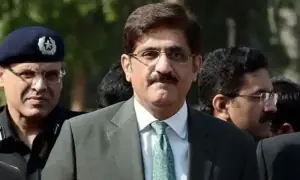









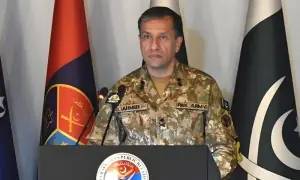


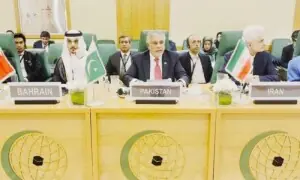
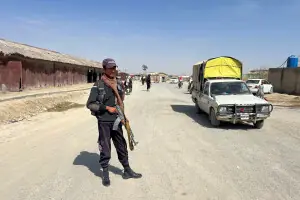
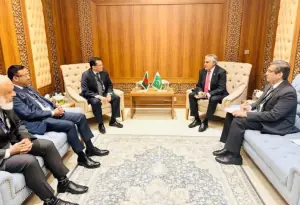




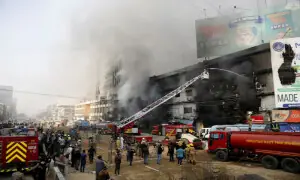

Comments are closed on this story.